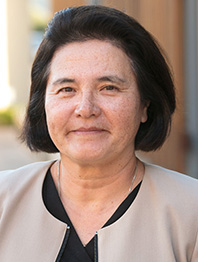All of Us Research Hub provides large volumes of genomic data that may improve the speed and quality of precision medicine research

Healthcare leaders should anticipate more rapid advances in future precision medicine research—especially for underrepresented populations—as the National Institutes of Health (NIH) releases a genomic database of nearly 100,000 whole genome sequences.
As the first dataset to come out of the NIH’s All of Us Research Program, this development will significantly expand the availability of the genetic data to researchers, enabling faster developments in personalized medicine research.
The federal All of Us Research Program—previously named the Precision Medicine Initiative Cohort Program—is an NIH research project that started in 2015. The program’s goal is to build a genomic database of more than one million individuals, focusing on the intersection of biology, lifestyle, and environment, according to a UC San Diego Health news release.
While the All of US initiative has existed for a while, the recent release of the first set of genomic data obtained by the program has significant implications. The availability of whole genome sequencing for this volume of patients will likely be an invaluable resource to researchers who often depend on partnerships with specific healthcare organizations for access to much smaller databases.
“As modern medicine seeks to become more precise and personalized, it necessarily requires more and more data to both understand the big picture of health and disease and, more specifically, how each person fits into the whole,” said Lucila Ohno-Machado, MD, PhD, in the news release. Ohno-Machado leads the All of Us Research Program at the UC San Diego School of Medicine and is a Distinguished Professor of Medicine, Chair of the Department of Biomedical Informatics at UC San Diego Health, and Associate Dean for Informatics and Technology.
Genomic Data from Underrepresented Patient Populations
Beyond just providing a large volume of new data, about 50% of the recent whole genome sequences came from individuals who are from patient populations that are traditionally underrepresented in medical research. Having a more diverse database of genomic sequences should enable medical researchers to better ensure their studies will include patients from all backgrounds.
“Until now, more than 90% of participants from large genomics studies have been of European descent. The lack of diversity in research has hindered scientific discovery,” said Josh Denny, MD, CEO of the All of Us Research Program, in an NIH news release. “All of Us participants are leading the way toward more equitable representation in medical research through their involvement. And this is just the beginning. Over time, as we expand our data and add new tools, this dataset will become an indispensable resource for health research.”
This new genomic dataset is available to researchers through the NIH’s All of Us Research Hub, making this genetic data easily accessed by any researcher needing genomic data to advance personalized medicine research.
The ease of availability of this genomic data, coupled with the growing volume of information that is readily available through the All of Us Research Program, may impact how quickly and effectively precision medicine technology advances. Healthcare leaders may want to look into All of Us’ new genomic dataset, as it could affect current trends in precision medicine research.
—Caleb Williams
Related Information:
Landmark Precision Medicine Research Effort Releases Its First Genomic Dataset
